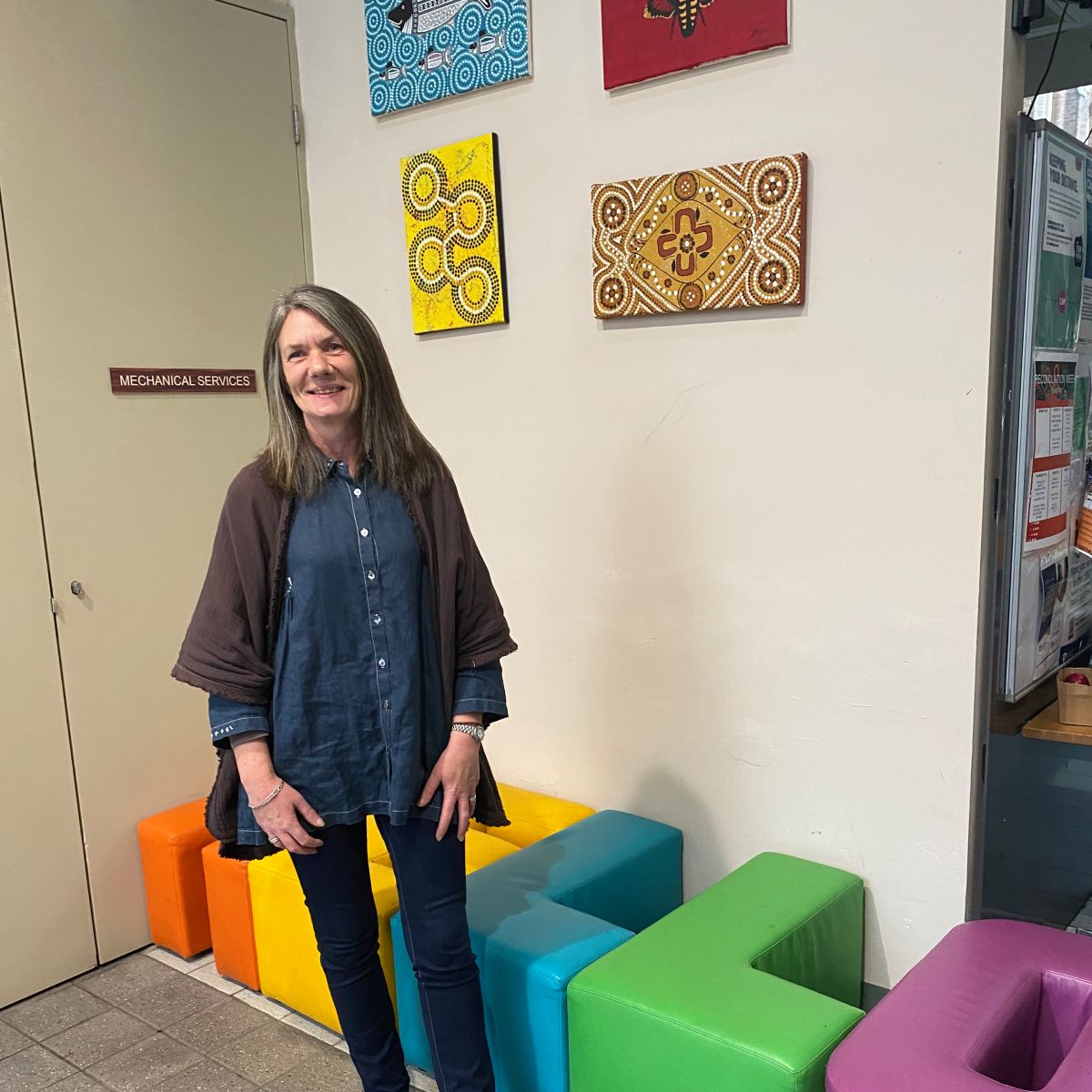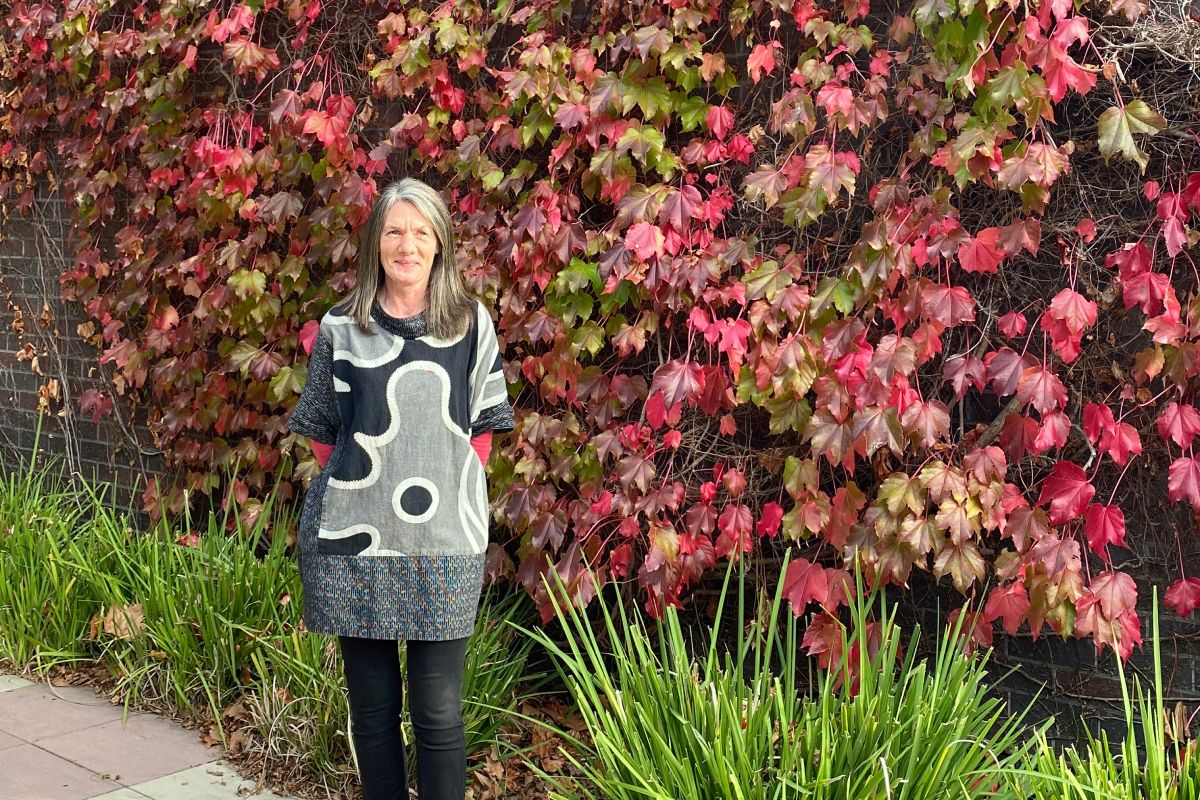Hope in homelessness complex care
 Manager of The Salvation Army’s Flagstaff and The Open Door Accommodation, Amanda Stokes
Manager of The Salvation Army’s Flagstaff and The Open Door Accommodation, Amanda Stokes
As one of the largest providers of homelessness services in Australia, The Salvation Army offers a range of support to build capacity for independent living. This Homelessness Week (7-13 August), manager of The Salvation Army’s Victorian-based Flagstaff and The Open Door Accommodation, Amanda Stokes, says the resilience she encounters in residents who are dealing with complex trauma, on top of homelessness, continually inspires her and her “amazing” team.
After more than 15 years at the coalface of complex homelessness support, manager of The Salvation Army’s Flagstaff and The Open Door Accommodation, Amanda Stokes, says her role remains a passion as much as a profession, as she is constantly inspired by the residents she serves.
Amanda has been with The Salvation Army homelessness and housing services for ten years and worked in a men’s homelessness long-term accommodation service in the United Kingdom prior to that. Many of the deeply sad stories she and her team hear from residents who had highly traumatic childhoods and adult lives is almost unimaginable, she explains.
“But so is their resilience.”
Holistic homelessness care and support
Flagstaff and The Open Door are part of The Salvation Army Homelessness Metro Melbourne Residential Services and operate 24 hours a day, seven days per week. The two sites provide 101 beds in total for single individuals 18 and over who identify as male, who are experiencing homelessness, and have multiple and complex support needs.
The Salvation Army also provides a range of longer-term housing options and referrals as part of a wider range of services.
Flagstaff and The Open Door staff work to provide a safe, secure, and supportive short-term accommodation service. Amanda explains that the service model supports community members to achieve positive change, walking with them rather than dictating the changes in any way.
The length of stay is dependent on individual needs and reviewed at regular intervals.
“For some who access the service, one stay is enough to gain stability, but for others, multiple stays are needed,” Amanda explains. “We have some community members and clients come back a few times over the years who take some steps forward and then need more help, but there are also those who have moved on and their lives have improved and they come back to tell us how well they are doing, which is always the best news!”
It takes a team to help build capacity
Amanda says that the service consists of an “amazing” team that cares deeply for those they serve.
Community members are supported by a multidisciplinary team that support and complement the work of case managers. The Community Support Team responds to the day-to-day needs of clients, identifying barriers for independent living and leisure skills and working in collaboration with case managers to address those barriers.
The Community Engagement Team provides therapeutic, recreational, educational, vocational, and capacity-building activities. The service is also supported by an Alcohol and Other Drugs team to provide recovery coordination and also manage the on-site needle and syringe program.
Addressing complex homelessness and housing needs
In the midst of a housing affordability and supply crisis, Amanda says the problem of exit points back into longer term housing is an ever-increasing challenge.
“Suitable long-term accommodation has become increasingly difficult to find. I started here as a case manager 10 years ago and it was a challenge then but now it is significantly harder. The waitlist for public housing has blown out, rental availability has shrunk, and prices have risen.
“I can't see another solution rather than building more affordable housing. The population has increased, but the housing stock hasn’t,” she says.
This Homelessness Week, partner with us to help end homelessness.
When asked what keeps her inspired and driven to make a difference, Amanda says, “I’m continually amazed by our community members and their resilience. Many have experienced terrible trauma throughout their childhood and that is carried through to adulthood. Complex mental health issues and struggles with alcohol and drugs are the daily reality many of our residents face.”
While the team sees heartache and tragedy regularly, Amanda says there are also stories of almost heroic resilience and transformation.

Transformation and hope in homelessness support
Amanda tells the story of Dylan* saying, “When I first came to the Salvos 10 years ago, Dylan had been sleeping rough in the city for some time. He would come into the service for 24 hours and disappear again. Each time he moved in, he stayed a little longer and ultimately for 14 months, but he was extremely traumatised and basically nonverbal.
“He had attempted suicide years earlier which led to an acquired brain injury, he was dealing with schizophrenia, autism spectrum disorder and struggled with a heroin addiction. He faced so many challenges.”
Amanda explains that Dylan always wore a duffle coat, with his hood up. He would not make eye contact and if spoken to, would stand there, but never respond. At that stage he did not shower or have any capacity for self-care.
Every day, Amanda would find him and just talk to him about life.
She says, “After about three months, I was sitting in the back office and he came up to the front desk and asked to see me, and he spoke in a London accent. It must have been listening to me talking for three months, and he picked up my London accent!”
During what became a prolonged stay with the service, Amanda worked with Dylan and discovered he had a talent for art.
Amanda explains, “This was a great therapeutic tool which improved Dylan’s communication. A team was brought together, including his mental health clinician and MACNI (multiple and complex needs initiative) to create a long-term support plan for Dylan.
“After months of planning, Dylan moved into one of our long-term residential services and when I go over there to visit, he always has a big smile on his face, and says, “Hi, Amanda, come and see my artwork”. He is involved in a range of service activities, he looks healthy, well and happy.
“While he still has struggles, the transformation in his life is quite beautiful,” Amanda says.
“Professionally, it was so good to see him so well. But beyond that, it makes my heart burst with joy to see him flourish. Really, when I found my career in this sector, I found my calling.
“It’s an absolute privilege!”